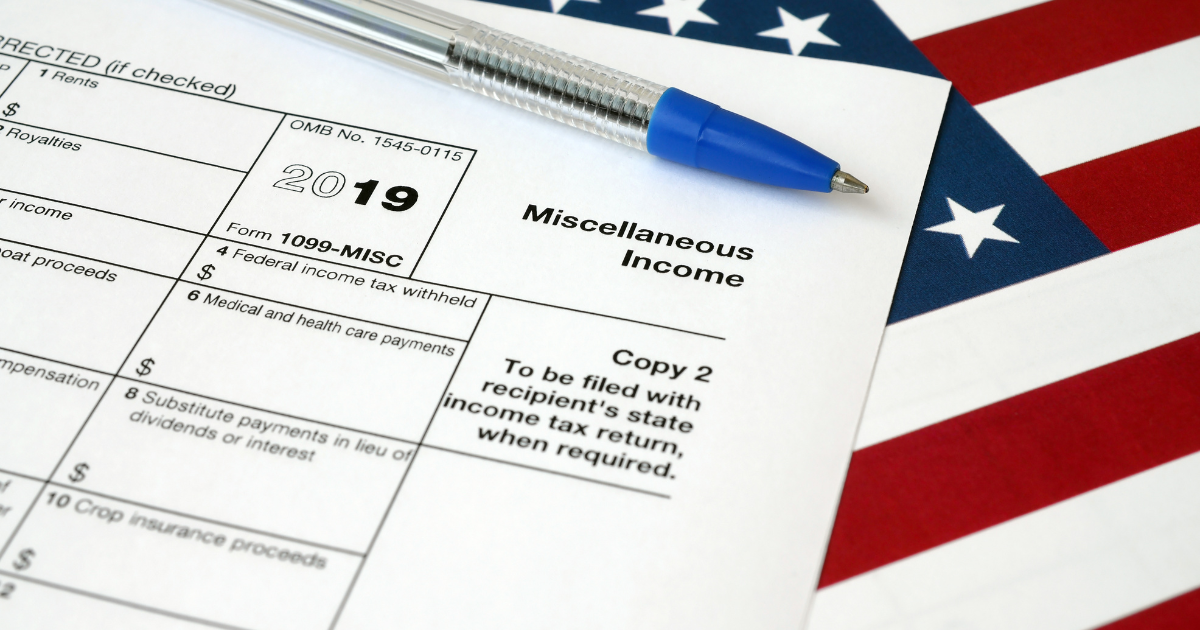Navigating tax law is no small feat, given its complexity and the frequent changes it undergoes. Both individuals and businesses must manage their taxes diligently to avoid costly errors and potential legal issues. Effective tax management can significantly influence financial stability and compliance with legal standards. It is where the expertise of a tax attorney becomes crucial. Whether you’re dealing with IRS notifications, starting a new venture, or facing an audit, understanding when to seek the counsel of a tax attorney can safeguard your interests and ensure you meet your legal obligations. As you manage your financial responsibilities, consulting with a personal tax lawyer or an IRS attorney can be an essential step in aligning your tax strategies with current laws, potentially saving you from hefty penalties and undue stress.
Understanding the Role of a Tax Attorney
A tax attorney is a lawyer who specializes in the complex field of tax law. They are licensed professionals who advise on the best legal ways to handle tax issues and represent clients in legal disputes with tax authorities. The primary responsibility of a tax attorney is to assist clients in navigating the maze of federal, state, and international tax regulations. They help in strategic planning to minimize tax liabilities legally, represent clients in tax disputes, and provide legal advice on the tax implications of various business and personal financial decisions.
Key Differences Between Tax Attorneys, Accountants, and Tax Preparers
While tax attorneys, accountants, and tax preparers all work with financial and tax-related matters, their roles and expertise differ significantly:
- Accountants generally handle the day-to-day management of financial records, prepare financial statements, and file tax returns. They may also offer general financial planning advice but do not have the legal authority to represent clients in disputes with the IRS.
- Tax preparers specialize in filing tax forms and ensuring that taxes are correctly filed. They may not have formal financial training and typically do not provide strategic tax planning or dispute resolution services.
- Tax attorneys specialize in the legal aspects of tax planning and are the only ones among the three who can represent clients in court. Their training in law enables them to navigate the legal system effectively when dealing with complex tax issues, making them indispensable in scenarios that involve litigation, legal tax disputes, or complex transactions.
Overview of Situations Typically Handled by Tax Attorneys
Tax attorneys handle a variety of complex situations that require a deep understanding of both law and taxation, including:
- IRS Audits and Disputes: When individuals or businesses are audited by the IRS, tax attorneys provide representation and negotiate on their clients’ behalf to resolve disputes and minimize penalties.
- Tax Planning for Businesses and Individuals: They advise on structuring assets, businesses, and investments to be tax-efficient and compliant with current laws.
- Estate Planning: Tax attorneys are crucial in planning estates, ensuring that assets are protected from excessive taxation and smoothly transferred according to the deceased’s wishes.
- International Taxation: Tax attorneys navigate the complex web of international tax regulations to ensure compliance and optimal tax treatment for businesses and individuals with operations or investments in more than one country.
- Criminal Tax Defense: In cases involving tax fraud or evasion allegations, a tax attorney is critical in defending clients against criminal charges.
Individuals and businesses can better manage their financial obligations and avoid legal pitfalls by understanding when and why to engage a tax attorney, such as when facing potential legal issues with the IRS or planning significant financial transactions. Employing an experienced tax attorney’s services ensures that all dealings align with the latest tax laws, potentially saving substantial amounts.
Key Signs You Need a Tax Attorney
1. Facing an Audit
When the IRS selects you for an audit, it typically scrutinizes your tax returns to verify accuracy. It can be daunting for anyone. A tax attorney can guide you through the audit process, represent you in discussions with the IRS, and help resolve discrepancies. They ensure your rights are protected and aim to minimize any potential financial impacts. For instance, consider a hypothetical scenario where a business underreports income; a tax attorney could negotiate penalties and provide strategies to mitigate future risks.
2. Starting a Business
For new business owners, setting up the legal and tax aspects correctly from the start is crucial. A tax attorney is vital in advising on the optimal business structure (like LLCs, partnerships, or corporations) that aligns with tax-saving strategies. They can also help with ongoing tax planning, ensuring your business maximizes its financial benefits while complying with tax laws. Effective tax planning with a professional can provide long-term savings and stability.
3. Acquiring or Selling a Business
Tax attorneys are essential for navigating the complex legal and tax implications when buying or selling a business. They ensure the transaction is structured efficiently, often saving substantial money by minimizing tax liabilities. Their expertise is crucial in drafting agreements, considering all potential tax consequences and ensuring both parties achieve favourable outcomes.
4. Estate Planning and Inheritance
A tax attorney is indispensable in estate planning, particularly for minimizing estate taxes and securing the financial future of your heirs. They provide strategies, such as trusts or gifts, tailored to your circumstances that can significantly reduce tax burdens. Their guidance ensures that large estates are managed effectively, protecting your legacy and easing the transfer of assets to the next generation.
5. Legal Tax Disputes
Having a tax attorney is crucial in disputes with the IRS or other tax authorities. They offer skilled representation in court or administrative hearings, challenging assessments or penalties imposed by tax authorities. Their legal expertise can be pivotal in cases where substantial penalties have been reduced or completely waived following a tax attorney’s intervention.
6. Complex International Tax Matters
For individuals and businesses with international dealings, a tax attorney helps navigate the complex landscape of global tax regulations. They assist with compliance issues related to offshore assets and foreign income, ensuring you adhere to domestic and international tax laws. This specialized knowledge is crucial for avoiding severe penalties and ensuring that international operations are conducted legally and efficiently.
7. IRS Notifications and Penalties
Receiving an IRS notification can be alarming. A tax attorney can help you understand the notice’s implications and devise a response strategy. Whether it’s a simple clarification or a significant issue, they provide expert advice on how to proceed. For example, they might negotiate reduced penalties or arrange manageable payment plans within your financial situation.
The value of consulting with a tax attorney is evident in these scenarios. They provide legal representation, tax advice, and peace of mind that you are making informed decisions that align with current laws and best practices. Whether dealing with day-to-day operations or unique challenges, their guidance can be crucial in navigating the complexities of tax law.
How to Choose the Right Tax Attorney
Choosing the right tax attorney is crucial to manage your tax-related legal matters effectively. This decision should be made carefully and carefully, based on a few critical criteria that can help you find a competent and reliable professional.
Criteria for Selecting an Effective Tax Attorney
- Experience and Specialization: Look for a tax attorney specializing in tax law that pertains to your needs. Whether it’s dealing with audits, IRS disputes, or complex business transactions, an attorney with relevant experience will be better equipped to handle your specific issues. Check their professional history to see the types of cases they have handled and their outcomes.
- Credentials and Qualifications: Ensure the attorney is licensed to practice law in your state and check their educational background. Many effective tax attorneys will also have additional certifications, such as a Master of Laws (LL.M) in taxation, which is a sign of advanced training in the field.
- Reputation: Look at reviews from previous clients and consult peer review ratings, if available. A tax attorney’s reputation among clients and peers can offer insight into their professionalism and the quality of their service.
Red Flags to Watch Out for During the Selection Process
- Promises That Sound Too Good to Be True: Be cautious of any tax attorney who promises specific outcomes. Legal matters, especially taxes, can be unpredictable, and no reputable attorney can guarantee results.
- Lack of Transparency in Billing: Understand how the attorney will bill you. Will it be a flat fee, or will you be billed hourly? A trustworthy attorney will be upfront about their fees and how they structure their billing.
- Poor Communication: Effective communication is vital. If you find the attorney challenging to reach or do not respond promptly to your inquiries, it might indicate future communication issues if you decide to hire them.
Resources for Finding Qualified Tax Attorneys
- Referrals: The best way to find a reliable tax attorney is often through referrals. Ask other professionals, like your accountant or business attorney, for recommendations. They can usually direct you to trusted colleagues who specialize in tax law.
- Professional Associations: Check with professional legal organizations like the American Bar Association or local state bar associations. They typically have directories of attorneys, including those specializing in tax law.
- Online Reviews and Ratings: Websites like Avvo, Martindale-Hubbell, and LinkedIn can provide information on attorneys’ backgrounds, client reviews, and peer ratings. These platforms can help you understand the attorney’s professional standing and client satisfaction.
Selecting the right tax attorney is an important decision that can significantly affect your financial and legal well-being. Choosing an attorney who meets your needs carefully and avoids potential red flags can lead to a more favourable resolution of your tax issues.
Conclusion
Throughout this article, we’ve outlined several clear signs that indicate the need for a tax attorney. From navigating the complexities of an IRS audit to making strategic decisions during business acquisitions or estate planning, the right legal advice is crucial. A qualified income tax attorney offers more than just tax preparation; they safeguard against potential legal pitfalls and financial setbacks.
It’s prudent to consult a personal tax lawyer if you face situations involving complex tax matters. These professionals are equipped to handle challenging scenarios that require deep legal knowledge and strategic foresight. Whether you’re receiving ominous notifications from the IRS, planning the future of your estate, or embarking on a new business venture, the assistance of a tax attorney is invaluable.
As we conclude, remember that protecting your financial and legal interests isn’t just about reacting to problems as they arise. Proactive consultation with a tax attorney can prevent many issues from occurring in the first place. By ensuring compliance and optimizing your tax strategies, you safeguard your financial health against unforeseen challenges, securing peace of mind for yourself and your business.
Make sure to evaluate your situation and consider whether the services of a tax attorney are right for you. Their expertise could be the key to maintaining legal compliance and financial security.





